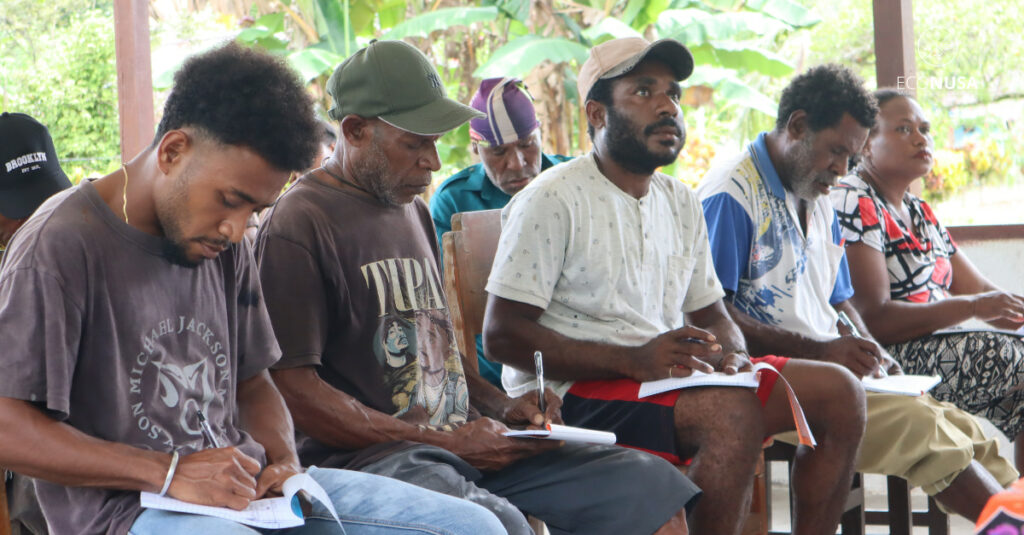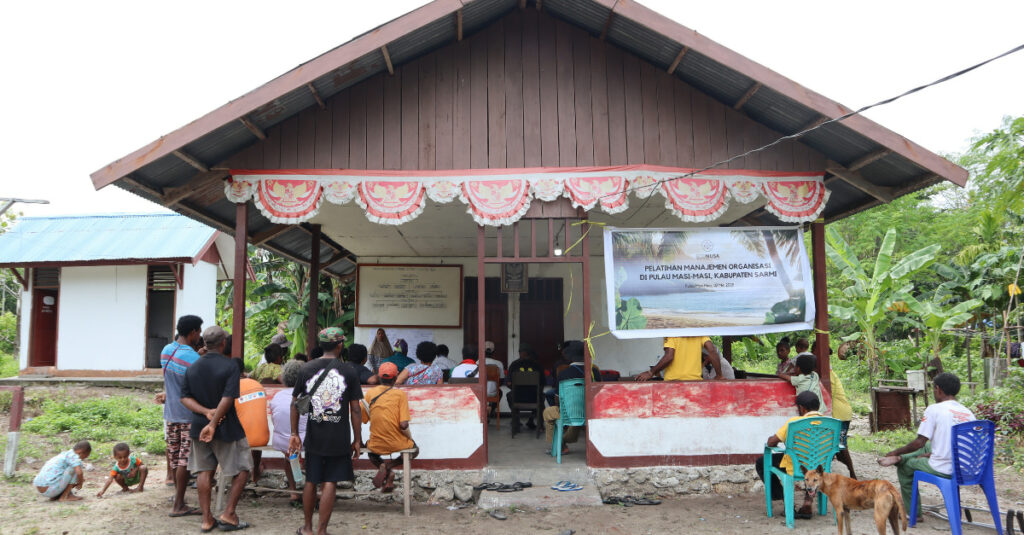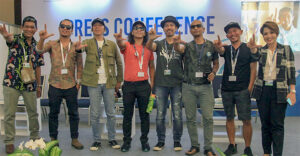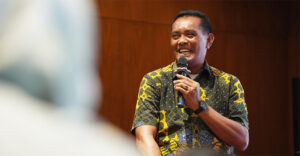
Masi Masi Island, located in the West East Coast District of Sarmi Regency, Papua, is a small island rich in natural resources. In Artibe Village, which sits on the island, residents make a living from both land and sea—harvesting coconuts, fishing, and collecting lobster and sea cucumbers. These resources form the backbone of the local economy.
One of the village’s main commodities is coconut, which is processed into copra and coconut oil. Fresh fish, lobster, and sea cucumber are also commonly caught and sold. However, due to the island’s remote location, transportation costs are high, making it difficult for residents to market their products efficiently.
Read Also: Improving Financial Literacy Among Copra Farmers in Kampung Takar, Papua
EcoNusa’s Early Support for Masi Masi Island
Since early 2025, the EcoNusa Foundation has been actively supporting the residents of Masi Masi Island. One of the initial steps was to purchase copra directly from local producers—an effort to strengthen the supply chain and open up marketing opportunities. However, long-term success will depend on the islanders’ own self-sufficiency.

Establishing a Village-Owned Enterprise (Bumdes): Starting from the Grassroots
EcoNusa also provided support in the establishment of a Badan Usaha Milik Desa (Bumdes), or village-owned enterprise, as part of a broader initiative to build community capacity. In May 2025, EcoNusa held an organizational management training session at the Artibe Village Hall, attended by residents and village officials.
In his remarks, Artibe Village Secretary Melkias Dimor expressed his gratitude for the initiative.
“On behalf of the village head, we thank the team for coming. Ladies and gentlemen, their purpose is to help us learn how to form a cooperative or Bumdes,” Melkias said.
Recognizing the island’s natural potential and geographic challenges, the community and village government began to design a long-term solution through the creation of a formal institution. The Bumdes is expected to serve as a platform to manage local resources, strengthen distribution systems, and open market access for coconut and marine products from the island.
Organizational Management Training
The training began with a session highlighting the importance of a well-structured organization. Etik Meiwati, Director of Finance and Operations at EcoNusa, emphasized the importance of appointing qualified and trusted individuals.
“Ladies and gentlemen, when choosing a treasurer and other leaders, please select those with the skills to manage money, keep records, write reports, and earn the community’s trust,” Etik advised.
Once the leadership structure was established, the session continued with hands-on training in organizational management. The EcoNusa team guided Bumdes leaders through mapping village potential, identifying available resources and capital, and drafting internal regulations to guide future business operations.
Read Also: Consolidating Community-Based Business Development in Eastern Indonesia
Toward Economic Self-Reliance
The establishment of the Bumdes is more than an administrative formality, it marks the beginning of a transformative economic shift for the village. With proper management, the island’s abundant resources: coconuts, fish, lobster, and sea cucumber, can be harnessed to improve the welfare of its people.
Through collaboration between the community, village government, and partners like the EcoNusa Foundation, Masi Masi Island is now stepping onto a path of economic self-reliance based on local potential. It is a small step from a village hall that brings a large hope for the future of coastal communities in Papua.




